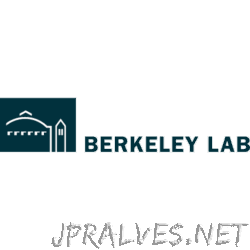Other
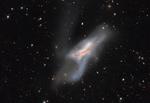
“The Siena Galaxy Atlas will be an invaluable tool for research into how galaxies form and evolve, gravitational waves, dark matter, and the structure of our universe. Mapping the night sky is essential for understanding our universe. Both researchers and …
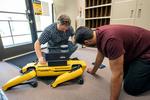
“Combining multiple sensors with smart robots is the latest evolution in mapping nuclear radiation In 2013, researchers carried a Microsoft Kinect camera through houses in Japan’s Fukushima Prefecture. The device’s infrared light traced the contours of the buildings …
“Semiconductors are the heart of almost every electronic device. Without semiconductors, our computers would not be able to process and retain data; and LED (light-emitting diode) lightbulbs would lose their ability to shine. But semiconductor manufacturing requires a lot of …

“A consortium of the nation’s best battery scientists, led by Lawrence Berkeley National Laboratory (Berkeley Lab), will accelerate the commercialization of a new family of battery cathode materials called DRX or “disordered rock salt.” DRX cathodes could provide batteries …
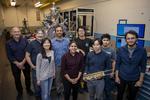
“The prospect of a quantum internet, connecting quantum computers and capable of highly secure data transmission, is enticing, but making it poses a formidable challenge. Transporting quantum information requires working with individual photons rather than the light sources used in …

“Pac Man, a refrigerator, and Maxwell’s Demon help Berkeley Lab researcher explore improved efficiency in nanosystems Getting something for nothing doesn’t work in physics. But it turns out that, by thinking like a strategic gamer, and with some …
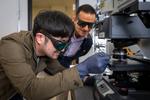
“A material known for its electronic properties could find a use in night vision, gas sensing, and spectroscopy technologies. Energy efficient LEDs (light emitting diodes) have begun to replace many types of lighting both indoor and outdoor. A key reason …
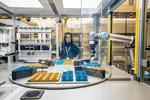
“Robots operate instruments and artificial intelligence makes decisions to find useful new materials at the A-Lab To accelerate development of useful new materials, researchers are building a new kind of automated lab that uses robots guided by artificial intelligence. “Our …

“Since its launch in 2020, the Quantum Systems Accelerator has enabled major progress in quantum information science – including record-setting sensors, smarter algorithms, and demonstrating a 256-atom quantum device can deliver science results Quantum computers could someday perform certain calculations faster …

“Scientists at Lawrence Berkeley National Laboratory (Berkeley Lab) have developed a conductive polymer coating – called HOS-PFM – that could enable longer lasting, more powerful lithium-ion batteries for electric vehicles. “The advance opens up a new approach to developing EV batteries …

